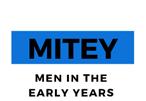
Apprenticeship Career Pathway in Education Funded training programmes NEW Level 3 Teaching Assistant inside TURN TO PAGE 7
We have a vision that...
every child is able to receive an excellent education regardless of background
every education professional is supported to be their best
Supporting you to support them
Contents
Apprenticeships 1
Early Years Career Pathway 2
Currently working with over 850 apprentices, we have used our experience in apprenticeships and early years to develop highly sought-after early years apprenticeships from level 2 up to level 5.
Early Years Practitioner (EYP) Level 2 4
Early Years Educator (EYE) Level 3 5
Early Years Lead Practitioner (EYLP) Level 5 6
NEW Teaching Assistant Apprenticeship 7
The Level 3 Teaching Assistant (TA) programme is ideal for anyone already working in, or looking for a career in a teaching support role.
Teaching Assistant (TA) Apprenticeship Level 3 7
Apprenticeship delivery 8
Next steps to becoming an apprentice 9
At Best Practice Network, we recognise how important the early years are in children’s development.
Apprenticeships
Apprenticeships can be used to recruit, upskill and retrain your staff
What is an apprenticeship?
Apprenticeships are work-based training programmes that are designed to help employers train people for specific job roles. Apprentices get a paying job with valuable training while they work towards a nationally recognised apprenticeship standard. An apprenticeship can be for new or existing staff. Best Practice Network is a national apprenticeship provider working exclusively with schools and nurseries to deliver apprenticeship training in leadership and the early years.
How much does it cost to do an apprenticeship?
It doesn’t cost the apprentice anything! In fact, you get paid to do an apprenticeship - you earn whilst you learn. And what’s great is that the programme probably won’t cost your employer anything either. Most schools and nurseries have access to ring-fenced funding specifically for apprenticeship programmes, called the English apprentice levy fund.

How much will I earn as an apprentice?
There are different rates of pay for apprentices depending on your age and what year of your apprenticeship you are in.
If you are aged 16 to 18, or aged 19 or over and in your first year, the current National Minimum Wage rate for an apprentice is £4.30 per hour.
For apprentices aged 19 or over and who have completed their first year, you are entitled to the National Minimum Wage for your age.
All apprentices are employed and have a contract of employment. You are counted as a regular employee so get all the benefits such as holiday and sick leave as well.
| 1 Apprenticeship Career Pathway in Education
Early Years Career Pathway
As part of our Early Years initiative, learners who wish to become early years professionals, or those already working in education, can take part in our programmes and advance onto other qualifications.
By progressing through the Early Years Career Pathway learners will develop the skills and knowledge needed to support children from early childhood through to the start of key stage 2. The initiative supports learners in achieving their own ambitions and allows them to gain the skills required to support the next generation in being able to reach theirs.
A rewarding career pathway
Kick off a career in early years with our Early Years Practitioner Apprenticeship Level 2 . After completion of the programme work in a range of early years setting, delivering Early Years Foundation Stage (EYFS).
Early years careers can be started or continued with Early Years Educator Apprenticeship Level 3. Apprentices will achieve an EYE qualification which has been approved to count towards the EYFS level 3 child: staff ratios.
The Early Years Lead Practitioner Apprenticeship Level 5 is ideal for highly skilled professionals who take an operational lead for the care, learning and development of all young children within their care.
Best Practice Network work closely with a partner who delivers a 12-month top-up programme, giving you a degree on completion and the qualification levels required to progress on to EYITT.
Early Years Teacher Status
Finally, completing Early Years Initial Teacher Training awards Early Years Teacher Status (EYTS), and as the leading Early Years Initial Teacher Training (EYITT) provider in the country, we boast a 100% pass rate.
Candidates can also progress through the career pathway via our Teaching Assistant Apprenticeship at Level 3 (see page 7 for more information.
2 | Best Practice Network Exce llent
JOIN HERE JOIN HERE JOIN HERE
JOIN HERE
• Nursery Manager • Nursery Nurse • Nursery Area Manager •
• Nursery Supervisor • Nursery
•
• Nursery Assistant •
•
Learn more at bestpracticenet.co.uk/early-years
Programme overview Career opportunities Learn more about EYITT at bestpracticenet.co.uk/eyitt Other opportunities are also available dependent on the setting
EYITT DEGREE TOP
UP LEVEL 5 LEVEL 3 LEVEL 2
Qualified teacher supporting pupils within the birth to 8 age range
Nurse
Early Years Teaching Assistant
Pre-school Assistant
Playgroup Assistant
As you progress in your career, you may consider these training programmes and gain the experience to progress in the roles available to you.
Early Years Apprenticeships: At a glance
Early Years Practitioner (EYP) Level 2
Early Years Educator (EYE) Level 3
Early Years Lead Practitioner (EYLP) Level 5
Care age range 0 to 5 0 to 5 0 to 8
Eligibility
• GCSE’s in English and Maths at Grade C (4) or above or able to achieve Level 2 English and Maths whilst on programme
• GCSE’s in English and Maths at Grade C (4) or above or able to achieve Level 2 English and Maths whilst on programme
• Level 3 Early Years Educator or Equivalent Qualifications / Experience
Programme duration 12 months Up to 18 months Up to 24 months Levy funded Full induction for both the employer and the apprentice Dedicated Tutor
Tutor Visits Monthly Every 6 weeks Every 6 weeks Monthly reviews Taught lessons
Knowledge webinars
One-to-one functional skills support
Learner access to our E-learning Platform Bud for building E-portfolio
Setting access to our E-learning Platform Bud to be able to track learner progress
Qualifications earned
• Level 2 Early Years Practitioner Apprenticeship
• NCFE CACHE Level 2 Diploma for the Early Years Practitioner
• Level 3 Early Years Educator Apprenticeship
• NCFE Diploma for the Early Years Workforce (EYE). Level 3 Award in Paediatric First Aid OR Level 3 Award in Emergency Paediatric First Aid
• Level 5 Early Years Lead Practitioner Apprenticeship
Qualification counts towards EYFS Level 3 child:staff ratios
| 3 Early Years Apprenticeships
EARLY YEARS
Early Years Practitioner (EYP) Level 2
An entry level qualification for those wanting to start a career in early years
Best Practice Network has combined the essentials of Early Years Theory and practical application, making this programme the perfect introduction to a career in early years.
Who is it for?
• An entry level work-based Early Years training programme, ideal for those wanting to enter a career as a Nursery Practitioner, Classroom Assistant or Pre-school Practitioner

• Suitable for either someone already working in or someone looking for a career in, an early years childcare and education setting
Entry requirements
• No age restrictions
Apprentices must have:
Benefits
Learn how to support and promote children’s early education and development, contribute to the planning and the organisation of activities in line with the Early Years Foundation Stage, and support the collection of accurate and up-to-date records which identify children’s individual needs, abilities and progress Develop effective and informed practice that safeguards and promotes the health, safety and welfare of children
The apprenticeship is levy-funded, with an employer incentive payments available
• Support from your employer and levy account holder

• Successful completion of screening interview
• Residency in the UK for the last three years
Apprentices receive a higher level of support with monthly tutor visits and taught sessions Learn more
4 | Best Practice Network
EARLY YEARS
at bestpracticenet.co.uk/EYP
Early Years Educator (EYE) Level 3
A funded work-based training programme in an Early Years setting
Best Practice Network has developed this industry-leading programme that will deliver the knowledge base alongside the skills and behaviours an apprentice will attain in the workplace.
Who is it for?
• Suitable for either someone already working in or someone looking for a career in, an early years childcare and education setting
• Ideal for someone looking to pursue a career as an Early Years Educator, Nursery Teaching Assistant, Nursery Nurse, Supervisor, or Child Minder

Entry requirements
• No age restrictions
Apprentices must have:
• GCSE’s in English and Maths at Grade C (4) or above or able to achieve Level 2 English and Maths whilst on programme

• Successful completion of screening interview
• Support from your employer and levy account holder
• Residency in the UK for the last three years
Benefits
Learn how to support and promote children’s early education and development, plan and provide effective care, teaching and learning that enables children to progress and prepares them for school
Make accurate and productive use of assessment and develop effective and informed practice
The apprenticeship is levy-funded, with an employer incentive payments available
Apprentices receive a higher level of support with monthly tutor visits and taught sessions
Learn more at bestpracticenet.co.uk/EYE
| 5 Early Years Apprenticeships
EARLY YEARS
Early Years Lead Practitioner (EYLP) Level 5

A funded work-based training programme focused on those working with and caring for children from birth to 8 years
Building on our entry level programmes and using our industry expertise to build a programme for those wanting to further their knowledge and careers.
Who is it for?
• Suitable for someone already working in early years who is looking to lead, or is already leading, on the operational aspects of their setting
• An active practitioner looking to advance their career and be an effective role model of play-based learning, supporting others in the development of their own practice and being responsible for the quality of the learning and development in their setting
Entry requirements
• No age restrictions
Apprentices must have:
• Level 3 Early Years Educator or Equivalent Qualifications / extensive experience in a leadership position
• GCSE’s in English and Maths at Grade C (4) or above or able to achieve Level 2 English and Maths whilst on programme

• Successful completion of entry interview
• Support from your employer and levy account holder
• Residency in the UK for the last three years
Benefits
Learn how to support and promote children’s early education and development, support the quality of learning and development at your setting and lead day-to-day practice at an operational level
Engage with sector developments both locally and nationally and work in partnership with the key person, colleagues, parents and/or carers or other professionals
The apprenticeship is levy-funded, with an employer incentive payments available
Learn more at bestpracticenet.co.uk/EYLP
6 | Best Practice Network
EARLY YEARS
Teaching Assistant (TA) Apprenticeship Level 3

A funded programme that invests in the professional development of teaching assistants with personalised learner pathways
Best Practice Network has developed this programme to develop the skills and knowledge of teaching assistants to deliver structured interventions that help improve learner outcomes.
Who is it for?
• Suitable for anyone already working in, or looking for a career in a teaching support role
• An active early years educator looking to take the next step in their career progression
Entry requirements
• No age restrictions
Apprentices must have:
• GCSEs in English and Maths at Grade C (4) or above or able to achieve Level 2 English and Maths whilst on the programme

• Successful completion of screening interview
• Support from your school and levy account holder
• Residency in the UK for the last three years
Benefits
Flexible approach to learning for both the school and learner, whereby all learners will gain the fundamental knowledge and develop the skills required to support teachers to enhance pupil learning
Potential fast-track to Higher Level Teaching Assistant (HLTA) status
The apprenticeship is levy-funded, with employer-incentive payments available
Learners will be able to personalise their learning based on their choice of specialist area(s).
Learn more at bestpracticenet.co.uk/TA
Programme specialist areas
Tailor your learning by choosing up to two specialist areas from the below:
| 7 Teaching Assistant Apprenticeship
NEW! The Level 3 Teaching Assistant (TA) Apprenticeship + + + + + Special Educational Needs and Disabilities (SEND) Early Years (EY) English as an Additional Language (EAL) Behaviour Assessment TEACHING ASSISTANT
How

8 | Best Practice Network Programme start Programme end Programme completion Choose your start date Tutor visits Complete a breadth of modules via monthly webinars End Point Assessment Submit work online using Bud
are our apprenticeships delivered? • These programmes have various start dates – they do not run as per the typical academic year • Work is submitted using Bud, the cutting-edge online platform, which is easy to use and includes login access for employers to keep track of their apprentice’s progress
training Apprentices are required to spend 20% of their working hours acquiring new workplace skills, knowledge and behaviours. However, this includes any work-place activities that bring new learning. Off-the-job training examples Training events Inset days Interactive online learning Coaching and mentoring Research Reflective learning Project activity Shadowing Networking and moderation events Begin your apprenticeship journey
Off-the-job
Why you should choose an apprenticeship
Ready to work
Our apprenticeships provide you with the skills and knowledge that will best prepare you for a career in education, making you more employable, competitive, and well-trained.
Earn industry-recognised qualifications and certifications
All of our apprenticeship programmes are industry recognised and available to anyone looking to gain experience, upskill or change careers.
Career pathway for future success
By benefiting from the extensive training provided in each of the apprenticeship programmes and the further career pathway, our apprenticeships set-up learners for continued professional development. This supports you in broadening the opportunities available to you in a range of careers within the early years sector.
Earn while you learn
On-the-job training, outside of an educational setting that is paid! Learners on our apprenticeship programmes are entitled to the Apprenticeship Minimum Wage.
Your next steps to becoming an apprentice
The first thing you need to do is visit our website, choose your apprenticeship and start your apprenticeship application: bestpracticenet.co.uk/apprenticeships
Applying for an apprenticeship is like applying for a job so you will have to go through an application process. If you do not have an employer yet, it’s worth registering with the government’s apprenticeship website: www.gov.uk/apply-apprenticeship, where you can find all of our vacancies.
We have lots of contacts in the industry, so if you email us your name, phone number and location, we will arrange a call to discuss your options and to support you towards finding an apprenticeship.
We can also help you find a workplace setting in your local area, ready for you to start a professional career in education.
What you can expect from the application process
Application form
Screening interview with Best Practice Network
Note: Be prepared for telephone and video interviews
Support in finding a workplace setting with our Recruitment team, if you do not currently have one Interview with employer/ workplace trial
Make sure you stand out
Scan the QR Code and watch our interview hints and tips

| 9 Apprenticeship Career Pathway in Education
Top tips when applying for an apprenticeship

Research
Make sure that a career in education is going to suit you and that you understand the available career pathways

Tailor your application
Stand out from the crowd and personalise the application with your experiences

Be the best
Make sure you write about your skills, qualities and not just your hobbies. This will help highlight your compatibility with the apprenticeship
Best Practice Network is a registered apprenticeship training provider and an accredited provider of professional development for education professionals nationally, with 97% of our participants recommending us to a colleague. We work in close partnership with practising education professionals to develop and deliver high-quality programmes.
Learn. Share. Grow.
Rated “an exceptional training provider” – Department for Education
+44 (0) 117 920 9200 enquiries@bestpracticenet.co.uk bestpracticenet.co.uk/apprenticeships
Supporting















